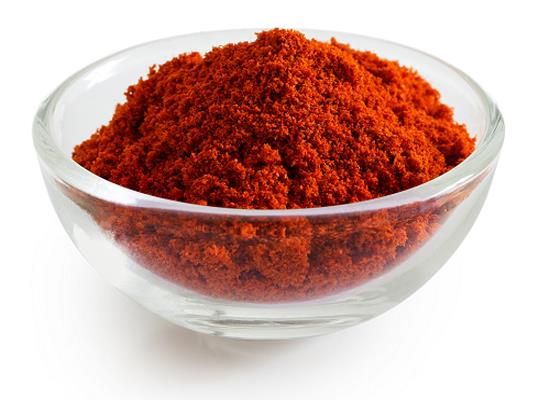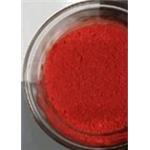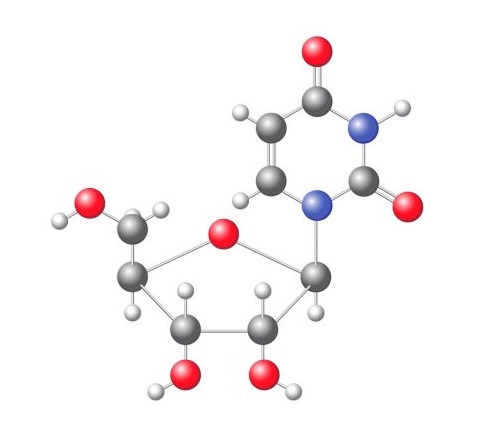Lycopene: food sources and activities
Jul 11,2023
General Description
Lycopene, a natural compound found in various food sources such as tomatoes, pink guavas, watermelons, and pink grapefruits, offers numerous health benefits. Lycopene is an antioxidant found in tomatoes, which helps prevent the oxidation of fats. Tomatoes are a rich source of lycopene, along with vitamins, minerals, fiber, and carbohydrates. Lycopene has various positive effects on health, particularly in relation to heart disease. It has been observed that dietary intake of lycopene has positive effects on stages of atherosclerosis, including serum lipid levels, endothelial dysfunction, inflammation, blood pressure, and antioxidative potential. Additionally, lycopene's antioxidant properties can enhance the nutritional value of foods and potentially be used in food preservation.

Figure 1. Lycopene
Food sources
Lycopene is found in various food sources. Red fruits and vegetables like tomatoes, pink guavas, apricots, watermelons, and pink grapefruits are rich in lycopene. Tomatoes, in particular, are a major source of lycopene and also provide vitamins K, A, C, fiber, and essential minerals. Processed tomato products such as tomato paste, ketchup, sauce, juices, and soups also contain lycopene. Consumption with dietary fat enhances lycopene bioavailability. Heat-treated tomatoes and field-grown tomatoes have been found to have increased lycopene content compared to fresh and greenhouse-grown tomatoes, respectively. 1
Activities
Antioxidant effects
Lycopene possesses strong antioxidant activity by neutralizing reactive species like hydrogen peroxide and hydroxyradicals. This antioxidant property helps prevent oxidative damage to food components, delaying spoilage. Lycopene's presence contributes to the vibrant red color observed in matured fruits, while the decrease in chlorophyll content adds to the color change. Due to rising concerns about synthetic additives, consumers are leaning towards natural products. Lycopene's ability to act as a free radical scavenger makes it an appealing choice for preserving the quality and freshness of perishable items. 2
Anticancer activities
Lycopene shows potential in preventing cancer and atherosclerosis by protecting cellular biomolecules. Diets without lycopene lead to increased lipid oxidation. Prostate cancer patients have lower lycopene levels and higher oxidation markers. Lycopene's acyclic structure increases reactive oxygen species. Epidemiological studies suggest lycopene's protective effects against prostate and colorectal cancers. In tissue culture experiments, it inhibits cancer cell growth and induces apoptosis. Additionally, it attenuates the IGF-1R pathway, slowing down breast cancer cell proliferation. Lycopene's antioxidant properties make it a promising compound in promoting health and preventing various diseases. 3
Cardiovascular Effects
Lycopene has potent cardiovascular health benefits. Its anti-inflammatory properties reduce the risk of cardiovascular diseases (CVDs). Lycopene acts as an antioxidant, counteracting reactive oxygen species production. It improves lipid profiles, enhancing high-density lipoprotein (HDL) functionality and reducing atherosclerosis. By promoting nitric oxide synthesis, lycopene supports endothelial function and lowers blood pressure. Its anti-inflammatory effects modulate neutrophil and macrophage activity, combating inflammation in the cardiovascular system. Overall, lycopene plays a crucial role in preventing CVDs through its multifaceted impacts on inflammation, oxidation, lipids, and endothelial function. 4
Side effect
Lycopene, when consumed through the diet, is generally safe with no significant side effects reported. However, excessive consumption of lycopene-rich foods can lead to a condition called lycopenemia, characterized by yellow to orange pigmentation of the skin. Lycopene accumulates in the high lipid content of the stratum corneum. The symptoms of lycopenemia can be resolved by adjusting the diet. Regarding lycopene supplementation during pregnancy, it is generally advised to avoid taking additional lycopene supplements alongside dietary sources. A study showed an increased proportion of preterm and low birth weight infants when 2 mg of lycopene supplement was taken daily from 12 to 20 weeks of pregnancy until birth. However, there are conflicting results from other studies regarding potential risks. There is limited information on the safety of lycopene supplementation during breastfeeding, so caution is recommended. 5
Reference
1. Raiola A, Rigano MM, Calafiore R, Frusciante L, Barone A. Enhancing the health-promoting effects of tomato fruit for biofortified food. Mediators Inflamm, 2014, 2014:139873.
2. Koleva II, van Beek TA, Linssen JP, de Groot A, Evstatieva LN. Screening of plant extracts for antioxidant activity: a comparative study on three testing methods. Phytochem Anal, 2002, 13(1):8-17.
3. Agarwal S, Rao AV. Tomato lycopene and its role in human health and chronic diseases. CMAJ, 2000, 163(6):739-744.
4. Thies F, Masson LF, Rudd A, et al. Effect of a tomato-rich diet on markers of cardiovascular disease risk in moderately overweight, disease-free, middle-aged adults: a randomized controlled trial. Am J Clin Nutr, 2012, 95(5):1013-1022.
5. Khan UM, Sevindik M, Zarrabi A, et al. Lycopene: Food Sources, Biological Activities, and Human Health Benefits. Oxid Med Cell Longev, 2021, 2021:2713511.
- Related articles
- Related Qustion
- Lycopene: A Potent Antioxidant Compound with Anti-inflammatory Properties Dec 25, 2024
Lycopene is a natural compound with potent antioxidants, cardioprotective, anti-inflammatory effects, guarding against oxidative stress and cardiovascular issues.
- The side effects and Precautions of Lycopene Jun 13, 2024
Lycopene (C40H56) is a red compound found naturally in fruits and vegetables.
- Uses of Lycopene Oct 24, 2019
Lycopene is a naturally occurring chemical that gives fruits and vegetables a red color. It is a powerful antioxidant that may help protect cells from damage.
Diquafosol Impurity-URD(Uridine) is one of the key nucleotide that making RNA. Uridine is a nucleotide base found in high levels in beer which is used for increasing synthesis of cellular membranes and for other neurological properties.....
Jul 10,2023Analytical Chemistry4-Hydroxy-2,2,6,6-tetramethyl-piperidinooxy is a heterocyclic compound with diverse potential effects, including antioxidative, antihypertensive, and antitumor properties.....
Jul 11,2023APILycopene
502-65-8You may like
- Lycopene
-

- $0.00 / 1removed
- 2025-12-16
- CAS:502-65-8
- Min. Order:
- Purity: 99.99%
- Supply Ability: 10g
- Lycopene
-

- $99.00/ kg
- 2025-12-16
- CAS:502-65-8
- Min. Order: 0.0010000000474974513kg
- Purity: 99%
- Supply Ability: 5000
- Lycopene
-

- $20.00 / 1KG
- 2025-12-16
- CAS:502-65-8
- Min. Order: 1KG
- Purity: 99%
- Supply Ability: 200 tons/ year






